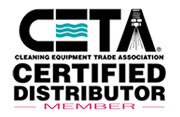 Commercial spaces can require different levels of cleanliness depending on the nature of the operations. However, you need to know if your business requires general cleaning, disinfection, sanitization, or any combination of these things because these are all different. Here’s what you need to know so that you can tell which methods of cleaning you need for your commercial business.
Commercial spaces can require different levels of cleanliness depending on the nature of the operations. However, you need to know if your business requires general cleaning, disinfection, sanitization, or any combination of these things because these are all different. Here’s what you need to know so that you can tell which methods of cleaning you need for your commercial business.
What Do the Different Terms Mean?
Some people use different cleaning terms interchangeably. However, cleaning something isn’t the same as disinfecting something, and those terms aren’t the same as sanitizing something.
When you know the differences between the terms, you can plan your cleaning and maintenance routines properly. For example, you can utilize tools, equipment, and products that help you achieve your cleaning needs without stocking up on equipment you don’t need.
Cleaning
Cleaning involves removing germs, dirt, and other detritus from surfaces. Typically, cleaning requires soap and water. Some businesses don’t have to do much more than keep their spaces clean and tidy. Cleaning also represents the first step before disinfecting or sanitizing a surface.
Disinfecting
When you disinfect something, it involves using chemicals to kill more germs than you can accomplish by only cleaning with soap and water. Understand that disinfecting something doesn’t always clean it, but cleaning something first will allow the disinfecting process to work more effectively at killing germs.
Sanitizing
Sanitizing something means you actively lower the number of germs, bacteria, and other microbes to levels that meet public health standards or industry requirements. You can accomplish sanitization through cleaning, disinfecting, or both. What meets standards and requirements will vary by industry and business operations.
When Should a Business Clean?
All businesses should always maintain general cleanliness. Routine cleaning helps to prevent the spread of harmful bacteria and viruses. Soap and water can’t remove all germs but can serve as a preventive measure against them.
Often, surface-level cleaning is all a business requires. Vacuuming carpets, wiping down surfaces, dusting, and other cleaning methods go a long way toward maintaining the atmosphere of your space and the health of the people who work in or otherwise use that space.
Set up a cleaning schedule that includes daily, weekly, and monthly cleaning activities. In this way, you will know what products you will need at any given time and what equipment you may need to rent or buy to facilitate routine cleaning duties.
When Should a Business Disinfect?
Disinfecting a surface, item, or area is all about removing the types of germs that can cause infections, ailments, or lower the quality of health for someone. The types of businesses and areas that will need to disinfect frequently include:
- Medical settings
- Facilities that perform any type of surgery
- Commercial kitchens
- Bathrooms
- Heavily touched features (such as doorknobs)
Disinfectants are powerful, so you shouldn’t use them routinely except in the types of aforementioned settings where they’re a necessity.
Disinfecting something isn’t the same as cleaning it. You can remove 99% of germs and bacteria but the surface might still contain dust, debris, and other things that require a more traditional wipe down.
Businesses should also keep disinfectants on hand to deal with emergencies, such as cleaning up blood or other bodily fluid. Note that if your goal is to remove or lower the prevalence of potential viruses on hard surfaces, then you must use disinfectant.
When Should a Business Sanitize?
Sanitization can involve cleaning, disinfecting, or both. When you sanitize something, you’re making sure that the item, surface, or area meets general public health standards. Sanitizing aims to both clean and disinfect simultaneously. This makes them a little stronger than normal cleaning products, but not as strong as products used purely for disinfecting.
A business with a commercial kitchen would want to keep the kitchen area generally clean, but sanitize things in the area that may collect a lot of germs over a short time, such as utensils. Areas that see a lot more bacteria than normal, like food prep surfaces, require disinfecting.
When you sanitize, you’re helping to prevent the growth and spread of germs and bacteria. Nevertheless, sanitization does not get rid of more stubborn microbes such as viruses, but it can help prevent them from taking hold if they’re not already present.
What Does a Business Need to Stay Clean?
You will need a variety of tools and products to keep your commercial space clean, sanitized, and in compliance with guidelines. Keep janitorial supplies, sanitizers, disinfectants, and traditional cleaning equipment on hand at all times. Hire professional cleaning contractors or staff who know what they’re doing. Also, make sure everyone in your commercial space understands their role in keeping things clean.
Ben’s Cleaner Sales Inc. offers everything a business needs to stay clean. If you need a professional shop with the items you require to clean, disinfect, or sanitize, contact us today.

